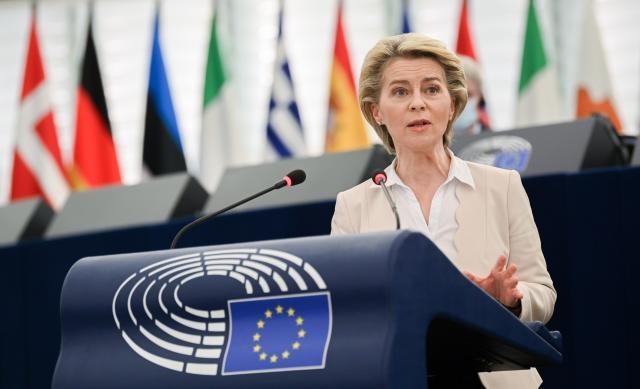EU cohesion policy: Commission adopts €808 million Partnership Agreement with Denmark for 2021-2027
The Commission adopted its Partnership Agreement with Denmark, setting out Denmark’s €808 million cohesion policy investment strategy for the period 2021-2027. The funds will support Denmark in promoting economic, social and territorial cohesion, with a focus on key EU priorities such as the green and digital transition. The funds will also contribute to the country’s competitive, innovative and sustainable growth.
A circular and export-oriented green economy
Denmark will speed up its green transition and will focus on the support of its small and medium-sized businesses (SMEs). €247 million under the European Regional and Development Fund (ERDF) will help Danish SMEs improve their research and innovation capacity, adopt advanced technologies, supporting their growth, competitiveness and internationalization. The ERDF will promote the circular economy in enterprises which focus on reducing waste and improve resource efficiency. Entrepreneurship and innovation will also receive a boost through investments in new businesses and start-ups.
Moreover, the ERDF will also support tourism infrastructures and will promote sustainable urban development especially of medium-sized Danish towns for living city centres.
An inclusive labour market and a skilled workforce
Denmark will promote a more inclusive labour market and a skilled workforce thanks to €120 million from the European Social Fund Plus (ESF+). For example, Denmark will invest in increasing skills, by ensuring that more people receive and complete their vocational training and higher education to match the labour market and business needs.
In addition, the ESF+ will help people to develop the skills and competences for a fair and social green and digital transition. Particular attention will be given to skills development in the tourism and urban development domains under both ERDF and ESF+. Finally, in line with the European Pillar of Social Rights Action Plan, the ESF+ will also support people on the margins of the labour market by helping them into new jobs, promoting social integration and combatting homelessness.
A socially fair green transition for the citizens
€89 million from the Just Transition Fund (JTF) will help Danish regions in their transition to a low-carbon economy while preserving jobs. Denmark plans to address the socio-economic impact of this transition in the entire local value chain, with a focus on SMEs development, testing and demonstration of the circular economy solutions, and developing new technologies for clean energy and emission reduction. Investing in upskilling of the workforce is also at the core of the JTF support.
A green fishery and aquaculture industry
Fisheries and aquaculture industries are part of the green transition. Denmark will dedicate €200 million of its European Maritime Fisheries and Aquaculture Fund (EMFAF) to improve resource efficiency and competitiveness of SMEs in the aquaculture sector and in the protection and restoration of biodiversity, through innovation and development of selective fishing gear and river restoration.
Members of the College said:
Commissioner for Cohesion and Reforms, Elisa Ferreira, said: “With the adoption of the Partnership Agreement, Denmark will move forward with its ambitious goal of a greener, more connected and more inclusive country. Cohesion policy funds will support the competitiveness of small businesses, the regeneration of city centres, and the green and circular economy.”
Commissioner for Jobs and Social Rights, Nicolas Schmit, added: “I welcome the Partnership Agreement with Denmark which includes support for important social priorities: skills, jobs and social inclusion. With this Agreement, Denmark is building a sustainable labour market and also equipping citizens with the right skills for a green and digital future.”
Commissioner for Environment, Oceans and Fisheries, Virginijus Sinkevičius, said: “Europe’s blue economy plays a crucial role in decarbonising our economy. This Partnership Agreement will allow Denmark to build a resilient, sustainable and low-carbon fisheries and aquaculture sector and to further develop its aquatic environment and use resources sustainably in the fishery and aquaculture sector.”

